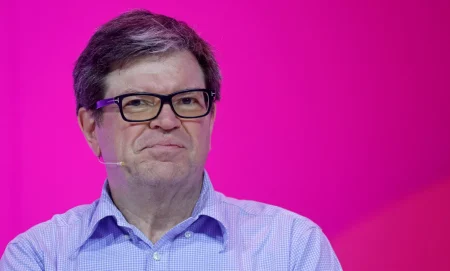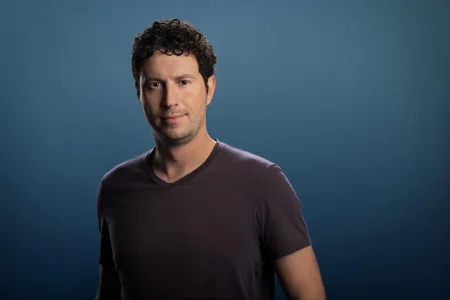The Visionary Behind Axsome Therapeutics: Revolutionizing Brain Disorder Treatments
Herriot Tabuteau, the founder and CEO of Axsome Therapeutics, has charted an unconventional path in the pharmaceutical industry that is now paying substantial dividends. Launched in 2012, Axsome began in a tiny windowless office in New York’s Rockefeller Center—affectionately dubbed “the broom closet” by early employees. Today, the company has blossomed into a pharmaceutical powerhouse with a $6.1 billion market capitalization and a portfolio that could potentially help millions of Americans suffering from brain disorders. Breaking from industry norms, Tabuteau bootstrapped his company without venture capital funding, relying instead on support from friends and family while maintaining tight control over development processes typically outsourced by competitors. “If you do things exactly the same way as everybody else, you’re going to have the same outcomes as everybody else,” Tabuteau explains in his first-ever media interview about the company.
Tabuteau’s personal journey is as remarkable as his company’s trajectory. Born in Haiti where he experienced significant hardship, including what he describes as physical, nutritional, and emotional neglect, he developed a resilience that would serve him well throughout his career. At age nine, he moved to Manhattan’s Upper East Side with his father and adoptive mother. His academic path led him from Wesleyan University, where he studied molecular biology and biochemistry, to Yale School of Medicine. Though initially planning to become a neurosurgeon, he was struck by the visible unhappiness of his physician professors and pivoted to finance, beginning with Goldman Sachs’ healthcare investment banking group. This career shift launched nearly two decades in finance, including positions at Bank of America Securities and hedge fund Healthco/S.A.C. Capital, providing him with unique insights into biotech successes and failures that would later inform his approach at Axsome.
The company’s name itself reflects Tabuteau’s scientific background—derived from two parts of a nerve cell, the “axon” and the “soma.” Unlike most biotechs that stake their futures on single drug candidates, Axsome diversified its risk by developing multiple drugs simultaneously. The company now boasts three medications on the market and five more in development, targeting conditions from depression and ADHD to Alzheimer’s disease. This portfolio approach has helped Axsome weather the inevitable setbacks of drug development, including an early pain medication that failed clinical trials, causing the company’s market cap to dip below $100 million. During these challenging early years, Axsome’s stock traded below $10, and skepticism abounded. “Nobody believed in Axsome years ago, and I think there’s still a lot of unbelievers,” notes Nick Pizzie, the company’s chief financial officer. “It’s a show-me story.”
The company’s breakthrough came with Auvelity, a treatment for major depressive disorder that received FDA approval in August 2022, causing Axsome’s shares to surge 65% in a single week. What makes Auvelity remarkable is its rapid onset of action—potentially working within one week compared to the six to eight weeks typical of traditional serotonin-based antidepressants. Tabuteau’s business acumen continued to shine when Axsome acquired Sunosi, a medication for excessive daytime sleepiness associated with narcolepsy or sleep apnea. In a masterful financial maneuver, the company purchased the drug for $53 million, then sold the rights for Europe, the Middle East, and North Africa for $66 million less than a year later, while retaining the profitable North American market where the drug now generates over $100 million annually. Mizuho analyst Graig Suvannavejh described it as “a very shrewd financial transaction.”
Looking ahead, Axsome is focusing on a potentially game-changing treatment for Alzheimer’s-related agitation. Current treatments rely on antipsychotic medications with serious risks, including death. Axsome’s alternative avoids these side effects, though it has shown mixed results in Phase III clinical trials. Despite this uncertainty, analysts believe approval is likely given the urgent need for safer alternatives. This drug forms a cornerstone of Tabuteau’s ambitious vision—he projects it could generate $1.5 billion to $3 billion in annual sales at its peak, while Auvelity could reach $1 billion to $3 billion. The company’s revenue has already reached $495 million for the 12 months ending in June, representing a 70% increase from the previous year. While Axsome is not yet profitable, recording a net loss of $247 million during this period, Tabuteau envisions peak sales of $16.5 billion from the current drug portfolio, which would place Axsome among the top 25 pharmaceutical companies globally.
With Axsome’s stock up 35% over the past year, significantly outperforming the nearly flat Nasdaq Biotech Index, Tabuteau’s unconventional approach appears validated. His dual expertise in medicine and finance, combined with his willingness to challenge industry norms, has positioned Axsome to potentially transform treatment for millions suffering from brain disorders. With over 400 patents to his name, including those for Auvelity which his company licenses from him, Tabuteau embodies the modern scientific entrepreneur. “We might be a small company in terms of size,” he reflects, “but we’re not a small company in terms of fundamentals or in terms of ambition.” As Axsome prepares to file for approval of its Alzheimer’s agitation drug and continues developing its pipeline, Tabuteau’s journey from a windowless office to pharmaceutical innovator serves as a compelling testament to the power of resilience and contrarian thinking in an industry often resistant to change.















